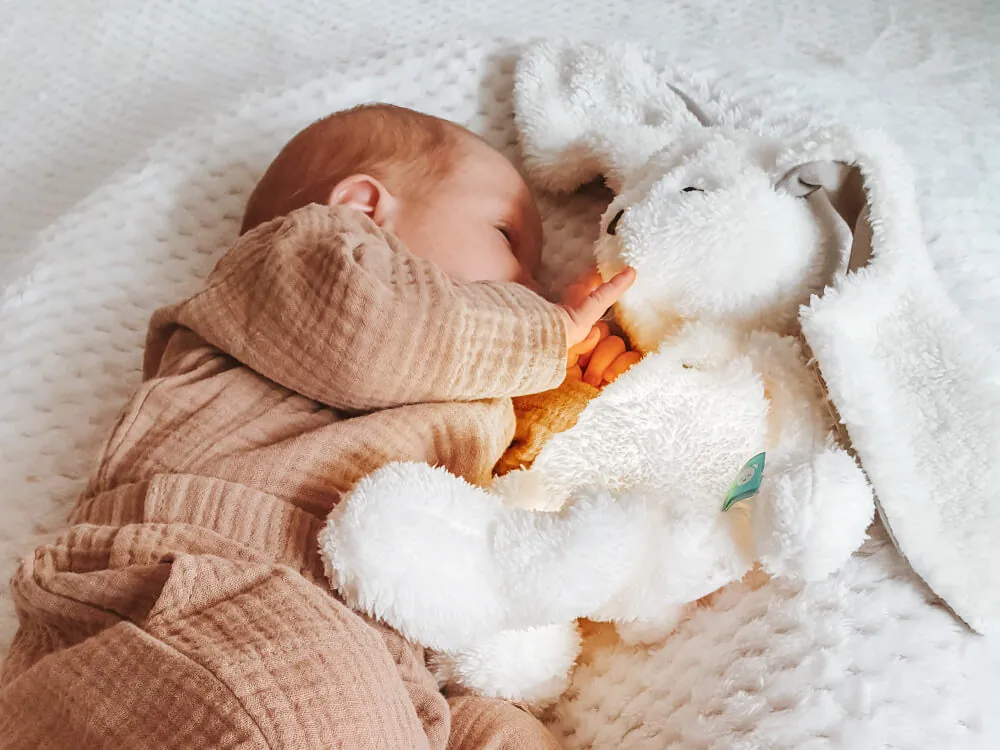Why Do Babies Move and Make Noises in Their Sleep? Understanding Infant Sleep Patterns
Blog
8
Why Do Babies Move and Make Noises in Their Sleep? Understanding Infant Sleep Patterns
Sleep plays a crucial role in a baby’s development. However, many parents worry when they see their baby moving a lot at night or making strange noises while asleep. In most cases, these behaviors are completely normal and are part of a baby's natural sleep cycle and motor development.
Why Is Sleep So Important for a Baby’s Development?
Good-quality sleep promotes brain growth, healthy development, and overall well-being in babies. However, since infants have different sleep patterns than adults, their REM sleep stage is longer, making them appear more restless.
If your baby moves a lot while sleeping, it may be due to:
✔ Natural sleep cycle transitions
✔ Reflex movements, such as the Moro reflex
✔ Developmental progress, like learning to roll over
To promote better sleep, a calming nighttime routine and white noise, like the soothing sounds of myHummy, can help minimize sleep disturbances.
Why Does My Baby Move So Much at Night?
Many parents notice that their baby moves constantly at night and wonder if it’s a sign of discomfort. However, babies naturally change positions multiple times throughout the night as they cycle through different sleep stages.
- The Moro Reflex: A normal reflex that can cause sudden jerky movements.
- Rolling and Kicking: Signs of developing motor skills.
- Sleep Adjustments: Babies reposition themselves to get comfortable.
A white noise machine can help create a familiar, womb-like sound environment, reducing unnecessary wake-ups.
Why Does My Baby Make Noises While Sleeping?
It’s common for a baby to groan, sigh, or grunt while sleeping. These sounds are typically harmless and indicate the baby is transitioning between sleep cycles.
Common Baby Sleep Noises:
✅ Grunting: Often due to digestion or adjusting sleep position.
✅ Moaning or whining: Could be linked to dreaming.
✅ Sighs and soft cries: Normal part of REM sleep.
If your baby is not in distress, it's best to let them sleep without intervening. A soothing background sound, such as myHummy white noise, can help reduce sudden wake-ups caused by minor sleep noises.
Baby Restlessness During Feeding – A Connection to Sleep?
Some babies tend to move a lot during bottle-feeding, which can be linked to:
- Fast milk flow causing discomfort
- Colic or gas buildup
- Unmet sucking needs
Tips to Keep Feeding Calm:
✔ Use an age-appropriate bottle nipple for proper milk flow.
✔ Feed in a quiet, dim environment to reduce distractions.
✔ Keep the baby in a comfortable upright position.
After feeding, a soothing sound machine can help babies transition into sleep more peacefully.
Is It Normal for a Baby to Grunt While Sleeping?
Many parents worry when they hear their baby grunting at night. However, this is typically normal and caused by:
✔ Dreaming or reflexes
✔ Developing digestive system
✔ Irregular breathing patterns, which mature over time
If there are no other signs of distress, there’s no need to intervene. Creating a calm sleep environment with white noise can help your baby settle into a deeper sleep.
How to Help Your Baby Sleep Better
If your baby moves excessively or makes sleep noises, these strategies can help:
✅ Establish a calming bedtime routine (bath, cuddle, story)
✅ Maintain an ideal room temperature (18–20°C / 64–68°F)
✅ Use a white noise machine to drown out sudden noises
✅ Don’t wake your baby unnecessarily if they’re making harmless sounds
myHummy white noise products help babies stay calm and reduce unnecessary wake-ups by providing continuous, soothing sounds.
With the right sleep environment and gentle routines, your baby can enjoy more restful, undisturbed sleep!✨
